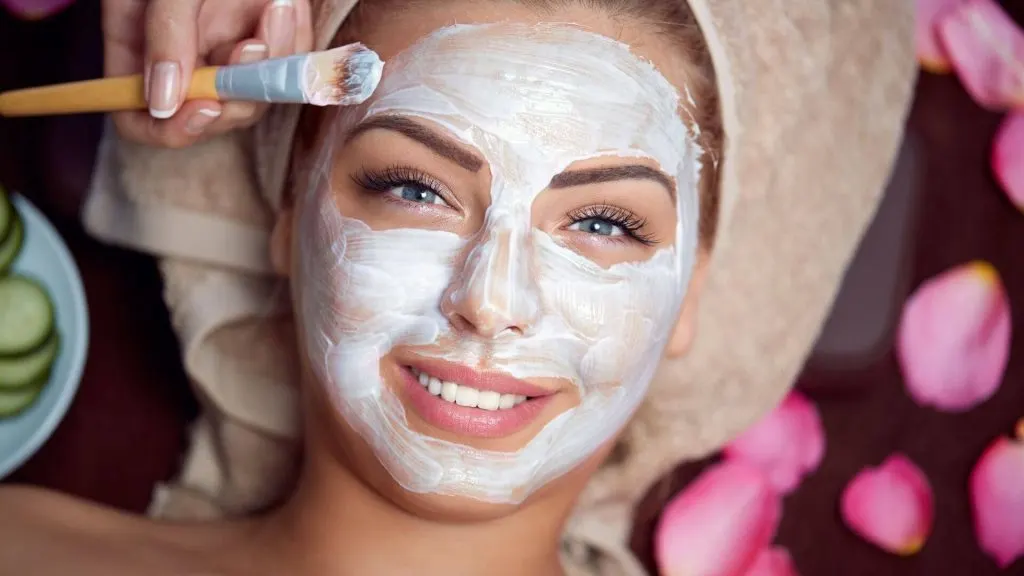Taking care of our skin is essential for overall health. It protects us from external factors and reflects our internal well-being. As our largest organ, the skin needs proper care to stay healthy. While many skincare products are available, improving skin health doesn’t have to be expensive or complicated. This article will share six easy tips to incorporate into your daily routine for healthier, glowing skin, focusing on both external and internal factors.

Cleanse and Exfoliate Regularly
Cleansing helps remove dirt, oil, and impurities from the skin’s surface, while exfoliating removes dead skin cells that can clog pores and cause dullness. Choose a gentle cleanser that suits your skin type and use it twice a day – once in the morning and once at night. Exfoliation should be done 2-3 times a week to avoid over-exfoliation, which can lead to irritation. Regularly cleansing and exfoliating will help keep your skin clean, unclogged, and free from buildup, allowing it to breathe and absorb nutrients more effectively. This will also help your skincare products penetrate deeper into the skin for better results. However, be mindful not to overdo it as this can strip the skin of its natural oils, leading to dryness and irritation.
Consider Laser Treatment
Laser treatment is another option to improve the health of your skin. This procedure uses concentrated beams of light to target specific areas and stimulate collagen production, which repairs skin conditions such as acne scars, wrinkles, and hyperpigmentation. It can also help with skin tightening and rejuvenation. However, laser treatment should be done by a trained professional, and it may require multiple sessions to see the desired results. Consult with a dermatologist to determine if this option is suitable for your skin concerns.
Protect Your Skin From the Sun
Overexposure to UV rays can lead to skin damage, premature aging, and even increase your risk of skin cancer. UV rays penetrate the skin and can cause sunburn, DNA damage, and loss of skin elasticity over time. To protect your skin, always wear sunscreen with an SPF of at least 30 when going out in the sun. Choose a broad-spectrum sunscreen to ensure protection against both UVA and UVB rays. Reapply every two hours or more frequently if you are swimming or sweating, as water and perspiration can reduce the effectiveness of sunscreen. Seek shade and avoid direct sunlight during peak hours between 10 am and 4 pm, when the sun’s rays are strongest. Staying in the shade can significantly reduce your exposure to harmful UV radiation. Wearing protective clothing like wide-brimmed hats, sunglasses with UV protection, and long-sleeved shirts made of tightly woven fabric can also help shield your skin from the sun’s damaging effects. Consider using clothing specifically designed with UV protection for an added layer of defense.

Adopt a Nutritious Diet
Eating a healthy and nutritious diet can also greatly contribute to the health of your skin. Foods rich in essential vitamins, minerals, and antioxidants can help nourish your skin from the inside out. Incorporate foods like avocados, salmon, nuts, and leafy greens into your meals to provide your skin with important nutrients such as vitamin E, omega-3 fatty acids, and antioxidants. Avoiding processed and sugary foods can also help prevent inflammation in the body, which can show up on our skin in the form of acne or other irritations.
Practice Stress Management
Stress can have a significant impact on our skin, causing breakouts, sensitivity, and even premature aging. Therefore, practice stress management techniques to maintain the health of our skin. This can include practices such as meditation, yoga, deep breathing exercises, or simply finding time for activities that bring you joy and relaxation. By reducing stress levels, we can help improve the overall appearance and function of our skin. Take care of your mental well-being as well as your physical health for optimal skin health.
Prioritize Quality Sleep
While we sleep, our body goes into repair mode, healing and rejuvenating cells damaged by environmental factors during the day. Lack of sleep can lead to increased levels of stress hormones, which can cause inflammation and break down collagen, leading to premature aging and other skin issues. Consequently, prioritize getting at least 7-8 hours of quality sleep each night to allow your skin to rest and repair itself. Develop healthy sleeping habits like sticking to a regular bedtime routine, avoiding screen time before bed, and creating a comfortable sleep environment to ensure a good night’s rest.
Taking care of your skin involves a combination of external and internal factors. By following these six tips, you can improve the health of your skin without breaking the bank or spending hours on complicated skincare routines.

Jessi is the creative mind behind The Coffee Mom, a popular blog that combines parenting advice, travel tips, and a love for all things Disney. As a trusted Disney influencer and passionate storyteller, Jessi’s authentic insights and relatable content resonate with readers worldwide.
